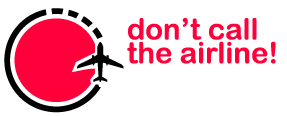Did Aeroplan break the rules?
Hello from Israel! I’m currently travelling with family, and my brother is scheduled to fly later this week on Swiss airlines in business class from Tel Aviv – Zurich – Montreal. Originally, both Swiss segments were scheduled on A330 aircrafts. This means they were internationally configured aircrafts, with lie-flat seats. Considering the first flight is a 5:20AM departure, this is significant.
Later, the aircraft was swapped with an A321. This aircraft has standard “European Business” seating. That means the seat is basically an economy seat, with the midde seat blocked off. Not acceptable for a 4.5H flight departing early in the morning. Aeroplan refused to waive the change fee (and noted the PNR accordingly, and refused to transfer to supervisor…)
Aeroplan is a ticketing agent for Air Canada. Tickets are issued on Air Canada’s ticket stock (“014”). Therefore, I believe that any Aeroplan ticket is subject to both Air Canada’s and the carrier’s tariff.
Air Canada’s international tariff defines a carrier as follows:
“Carrier” means the air carrier issuing the ticket [where’s the comma!?] the participating carrier, or any air carrier that carries or undertakes to carry the passenger and/or his baggage thereunder or performs or undertakes to perform any other services related to such air carriage.
Section 100(D)(1) of the tariff states:
For the purpose of this paragraph, the term “Carrier-Caused Refund” (sometimes referred to as “Involuntary Refund”) shall mean any refund for reasons within the carrier’s control made in the event the passenger is prevented from using the provided for in his/her ticket. For example, because delay or cancellation of flight within carrier’s control, inability to provide previously confirmed space (denied boarding), substitution of a different type of equipment or to a lower class of service by carrier (downgrade) other than upon passenger’s request, missed connections due to schedule irregularity within carrier’s control, or omission of a scheduled stop due to a situation within carrier’s control. [emphasis added] [errors original and highlighted…comm’on AC, this is your tariff, check for errors. They’re everywhere in your tariff!]
The tariff was not written for Aeroplan tickets in mind, however, since Air Canada is the issuing carrier for Aeroplan tickets (I believe Aeroplan still uses an old Air Canada ticketing system), any Aeroplan ticket would be subject to Air Canada’s tariff, and consequently, the refund rules found in s.100(D)(1) apply.
Aeroplan’s Terms and Conditions say nothing about involuntary changes to a reservation. However, it is logical to think that if you don’t get what you paid for, you should be eligible to make a change or refund an itinerary. I’m not going to go into detail regarding the applicable contract law, since I think it’s pretty obvious.
In this case, my brother paid for a lie-flat seat between Tel Aviv and Zurich, and will be seated in an economy seat with a blocked seat beside him. Imagine for a moment that you paid $10,000 to fly on a lie-flat seat (“Business”) over the Pacific, and on the day of travel, to be told that the aircraft was changed to a style where all seats were similar to an economy seat. However, the carrier designated the first row as “Business”, and said “since you’re flying in Business, no refund.” This is obviously absurd.
The parallel to this hypothetical and this story are clear. Further, whereas Aeroplan’s Terms and Conditons say nothing about involuntary changes to a reservation, any reasonable person (or court) would defer to Air Canada’s tariff. Under the tariff, an equipment change would reasonably allow for a refund or change free or charge. Why Aeroplan doesn’t see it this way is beyond me.

You are not reading the Tariff properly. The “Carrier-Caused Refund” section above is a definition. It only applies if there is a refund made, likely for an unused ticket.
I get that, but you will see later on in the tariff that it applies to partially used tickets as well. Again, the tariff is worded for revenue fares, but I think it could be reasonably interpreted to apply to award tickets as well
But the ticket was fully used so how did they violate anything?
It was partially used. When you look to s.100(d)(1) the definition includes equipment change, and then in the following section, explains that if you meet the definition, you’d be allowed a refund of the unused portion.
I had a similar issue on United from SFO to HNL with a revenue ticket. Equipment was a 767 with fully flat business and was swapped for a lousy 737. I had put some effort into the routing to ensure the fully flat product, as most Hawaii routes feature inferior products. United wanted to charge the change fee of course, which was eventually waived after the phone agent belittled me a bit (worth it). Equipment changes have always bothered me for this reason – the airlines couldn’t care less. Imagine ordering a large deluxe pizza and getting a small cheese instead. The airlines response would be ‘well at least you got fed’.
Air Canada and hence Aeroplan… we’re not happy until you’re not happy.